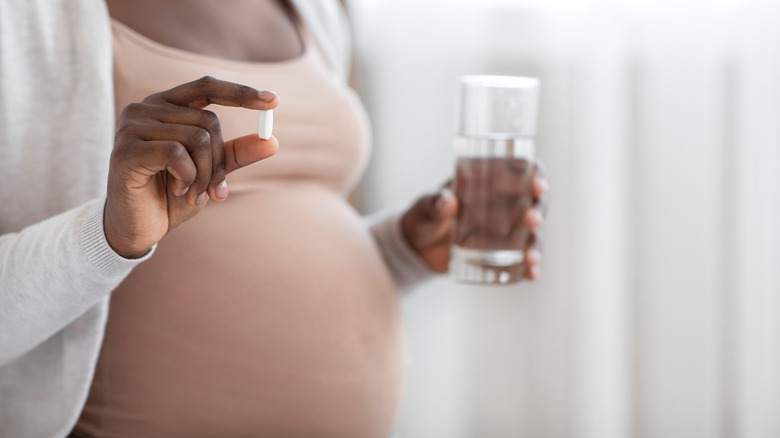Why Is Anemia Common During Pregnancy?
Anemia is one of the most common health conditions associated with pregnancy, causing fatigue, dizziness, irregular heartbeat, and overall weakness. Its causes range from low iron levels to excessive bleeding and inflammation, according to the MSD Manuals. Any of these factors can affect the production of red blood cells that carry oxygen to your tissues. As a result, you may experience tiredness, shortness of breath, leg cramps, and other symptoms.
The World Health Organization estimates that more than 11% of pregnant women in the U.S. and up to 60% of those in developing countries have anemia. Globally, this condition affects about one-third of people, including 3 million Americans, reports the Cleveland Clinic. Mild anemia causes few or no symptoms — but it can lead to complications, such as depression or heart failure.
Iron-deficiency anemia appears to be particularly common in pregnant women, notes the Cleveland Clinic. If left unaddressed, this disorder can affect both the mother and her baby, causing preterm birth, low birth weight, hair loss, dry skin, and headaches. The resulting lack of energy can make it difficult to function properly and keep up with daily activities. Thankfully, it's possible to prevent and treat anemia before it takes a toll on your health.
The unexpected link between anemia and pregnancy
Your body goes through several changes when you're pregnant, including an increase in blood volume. The blood goes to your unborn child to support their growth and development. This process, however, can deplete your levels of iron and other nutrients, resulting in anemia. About 75% of all cases of anemia in pregnancy are due to low iron levels, according to clinical evidence published in the Annals of the New York Academy of Sciences. The second most common cause is folate deficiency.
Similarly, a deficiency in vitamin B12 may cause anemia during pregnancy, explains Cedars-Sinai. A vegan or vegetarian diet, celiac disease, inflammatory bowel disorders, and severe morning sickness can further increase your risk of becoming anemic. You may also develop this condition if you're expecting twins or having babies too close together. Women with a history of heavy periods and those who've had bariatric surgery for weight loss are at risk, too.
In severe cases, maternal anemia can lead to miscarriage or stillbirth, reports the Annals of the New York Academy of Sciences. Additionally, pregnant women who develop anemia have a higher risk of postpartum infection, notes the MSD Manuals. Given these risks, it's important to make sure you get enough iron, folate, and vitamin B12 from food and supplements. The experts at Cedars-Sinai recommend taking supplemental iron with citrus juice to maximize its absorption. Also, choose a multivitamin with at least 400 micrograms of folic acid, a synthetic form of folate.


